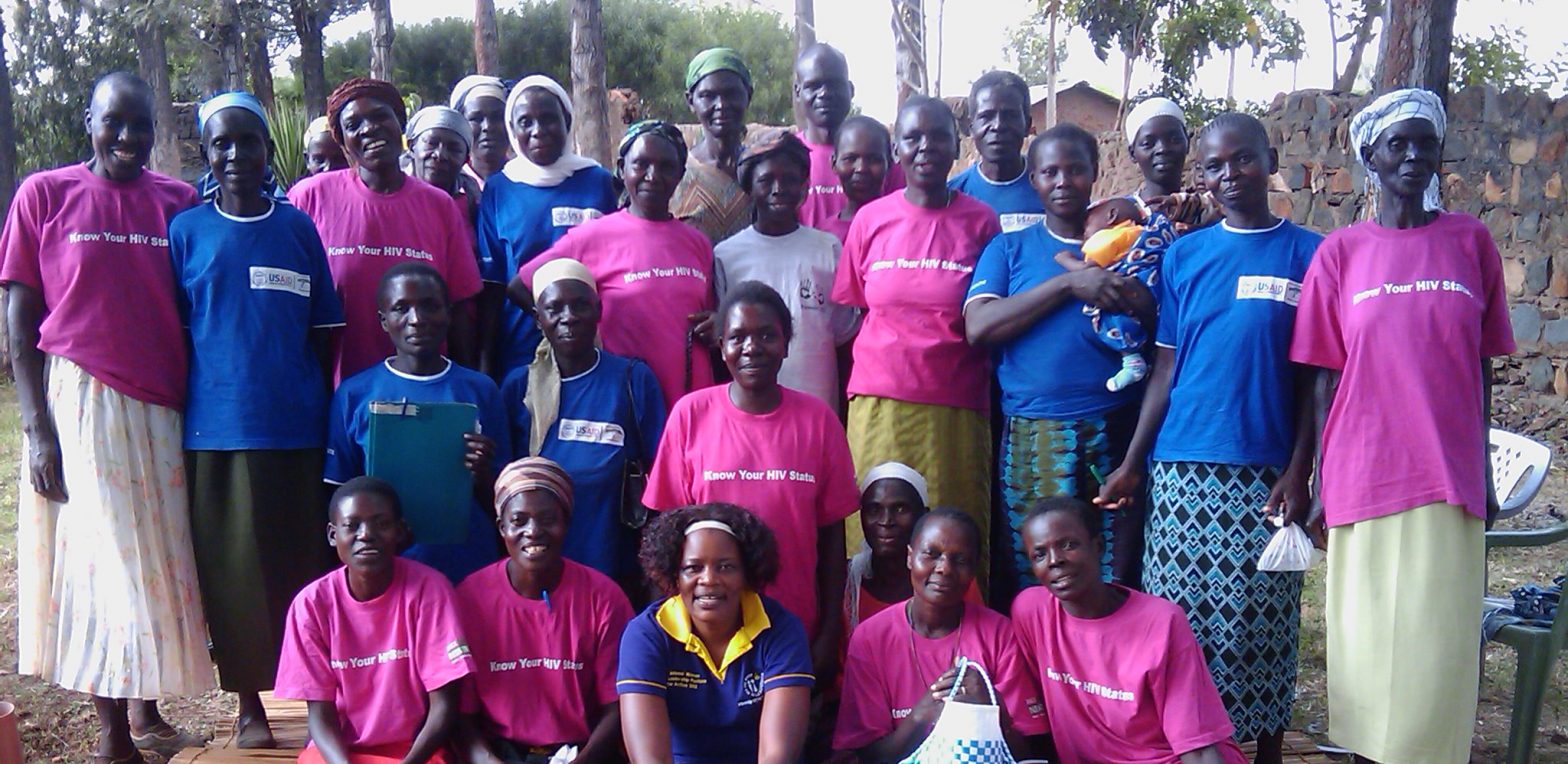What’s been happening lately with our partners, the Aniga Women? They live in a very rural area, in Kisumu county in Kenya, on the shores of Lake Victoria, and many of them are farmers. We were excited to hear that they want to set up a farming co-operative to grow crops resistant to a changing climate, thereby increasing the resilience of the community.
This sounded like a great idea, but we didn’t know how it might work in practice. So, to start with, we have been working with Professor Kenny Lynch and interns from the University of Gloucestershire, who did some research into the local situation and what crops might be suitable. Following the women’s suggestion of cassava and orange fleshed sweet potatoes, the research indicated that sweet potatoes would be most suitable.
Global Footsteps secured funding to pay local experts in Kenya to work with the women on a feasibility study and project proposal to confirm whether and how the project would work, and of course, how much it would cost.
That work has now been completed, and the reports we have had from the local consultant have been excellent, confirming that sweet potatoes would be the best crop to concentrate on. The feasibility study found that:
- Orange fleshed sweet potatoes (OFSP) are a suitable crop for a changing climate, being resistant to drought and heat.
- Farmyard manure is the only fertiliser needed, and only the vines will need irrigation.
- There is demand for sweet potatoes, both as food for the farming community and for sale locally.
- Sweet potatoes can be processed into flour or purée, therefore bringing “value added” benefits and increasing the shelf-life and flexibility of the crop.
- Equipment for farming and processing is relatively simple and cheap.
- Health benefits for local families are considerable, notably to address vitamin A deficiency.
The project proposal details how the project will work. It aims to:
- Train smallholder farmers who have agreed to use part of their land to grow sweet potatoes, in partnership with the Kenyan government local agricultural office.
- Set up community nutrition groups to support families to grow and understand the health benefits of sweet potatoes and how they can be used.
- Establish vine multiplication sites to produce the planting materials for the smallholders and families in the community nutrition groups.
- Establish demonstration sites to showcase best farming practice.
- Set up marketing groups to work co-operatively to sell and process surplus crops.
In addition to growing crops resilient to a changing climate, thereby producing food for their own use and for sale locally, the project will increase the income of participating families, as well as reducing infant mortality and malnutrition. This small scale but co-operative farming is kind to the environment. A total of 960 families will benefit directly over three years. The project particularly targets households led by women.
In round figures, the total cost of the project over 3 years is £73,000, with £53,000 to be raised in the UK by the charity, and £20,000 contributed by the Aniga Women towards staff and admin. The funds we raise will be for staff and training costs, and equipment. After three years it should be self-sufficient and sustainable.
This is an important project, helping one of those vulnerable communities that has contributed the least to climate breakdown but is on the frontline of its effects. It contributes to 12 of the 17 Sustainable Development Goals https://sdgs.un.org/goals. So the next step is to raise the money! We are hoping to use a variety of methods – applying for grants, crowd funding, corporate sponsorship, fundraising events. Let us know if you have any ideas.
Written by Alison Crane
